If you've ever struggled to fall asleep, you've probably heard of melatonin, right? It's one of those things that pop up in every conversation about sleep, and for a good reason! Let's break down everything you need to know about it in a way that's easy to understand.
So, What is Melatonin?

It is a hormone produced by your body that plays a crucial role in managing your internal clock. Think of it as your body's natural sleep coach, It helps regulate your sleep-wake cycle, signaling when it's time to wind down for the night. When you take it as a supplement, you're giving your body an extra boost of this hormone , encouraging relaxation and preparing for sleep.
It's important to note that it isn't like a sleeping pill that knocks you out instantly. Instead, it creates the right environment for sleep by reflecting your body's natural processes. So, don't expect to feel drowsy right away; consider it more of a gentle nudge guiding you into a restful state when the time is right.
Who Needs It?
This isn't for everyone, but it can really help certain people.
If you often have trouble falling asleep or staying asleep, it might be a good choice for you. It's especially useful for folks with insomnia or anyone who struggles to wind down at night. If you find yourself tossing and turning or staring at the ceiling, it can help you get back on track.
Traveling a lot? If you've ever flown across time zones, you know how confusing jet lag can be. It can help reset your internal clock, making it easier to adapt to new sleep schedules. Just take a dose before bedtime in your new time zone, and you might find it easier to sleep and wake up refreshed.
Shift workers, this one's for you! If you work nights or have irregular hours, it can help signal to your body when it's time to sleep, even during the day.
And if you're dealing with stress or anxiety, it can promote relaxation, making it easier to quiet your mind at night.
Just remember, it is meant for specific sleep issues, not a cure-all for chronic sleep problems. If you're not sure if it's right for you, talking to a healthcare professional is a smart move. They can help you find the best solution for your needs.
It can be a game changer for people facing sleep challenges like insomnia, jet lag, shift work, or stress. If any of this sounds like you, it might be worth a try.
Health Benefits
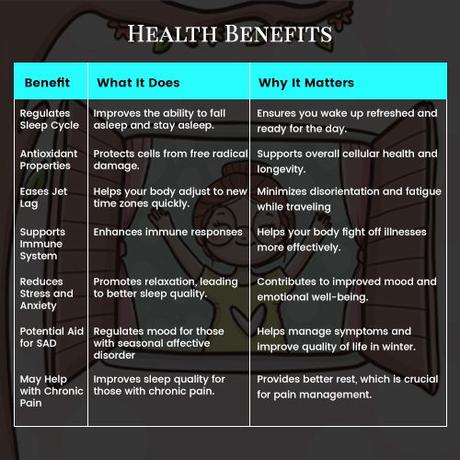
When Should You Take Melatonin?

Timing is really important when it comes to taking it. Ideally, you should take about 30 minutes to an hour before you plan to go to bed. This gives your body enough time to absorb it and start telling your brain that it's time to sleep.
But remember, it's not just about popping a gummy and calling it a night. To really help your body get ready for sleep, try dimming the lights and turning off your electronics. I know it's tempting to scroll through your phone in bed, but that light from screens can actually interfere with how well it works. Your brain links light with being awake, which isn't what you want when you're trying to wind down. So, you can take it when you're ready to relax for the evening!
How Much Melatonin Should I Take?
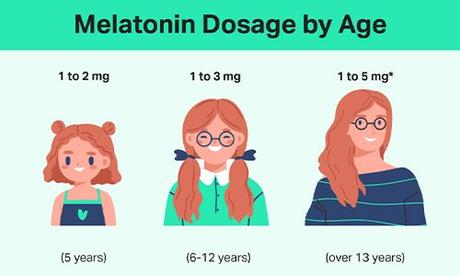
This is where people often get confused. More of it doesn't always mean better sleep. In fact, a small dose is usually all you need. Most people do well with 1 to 3 milligrams. If you're new to consuming it, start with the lowest dose around 0.5 to 1 mg, and see how it affects you. If you don't notice any improvement after a few days, you can gradually increase the dose.
Remember, everyone's body is different. Some people are more sensitive to it than others, so it's important to start small and work your way up if needed. Also, it's always smart to speak with your doctor if you're unsure about the right dose for you, especially if you have other health issues.
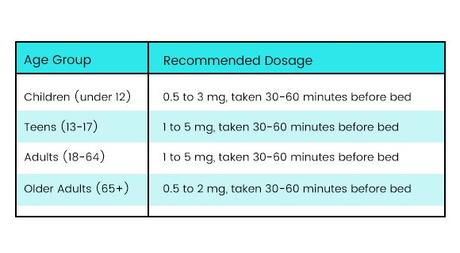
How Long Does Melatonin Last?

Its effects can last between 4 to 8 hours, but this can depend on several factors like your dosage, metabolism, and how sensitive you are to the hormone.
It usually starts working in about 30 minutes to an hour, helping you feel sleepy and ready for bed. After that, the effects gradually decrease, which is why it's recommended to take it around 30 minutes before you plan to sleep.
For most people, this timing fits well with how long they want to sleep through the night. If you find yourself waking up too early or feeling groggy in the morning, you might want to try a lower dose or adjust your timing.
Just remember, everyone's body reacts differently. Some may notice the effects wearing off faster, while others might feel them longer. It's important to pay attention to your body and find what works best for you. If you have any concerns about how it is working for you, consulting a healthcare professional is a smart choice.
Foods that Contain Melatonin

Did you know that you can boost its levels naturally through your diet? Yep, it's true! Certain foods are rich in it, which can help support your sleep cycle and overall well-being. Let's dive into some of these tasty options.
Tart Cherries
These little red gems are one of the best natural sources of it. Whether you enjoy them fresh, in juice form, or even as dried snacks, tart cherries can be a delightful addition to your evening routine.
Who doesn't love a refreshing bunch of grapes? They contain melatonin, so snacking on them can be a sweet way to help your body relax and wind down at night.
Yes, even tomatoes! They're not only versatile and delicious in salads, sauces, and sandwiches, but they also have it. So, feel free to add them to your meals!
Whether you enjoy them whole or as olive oil, olives are a tasty source of it. They can add a nice flavor to your dishes and help promote better sleep.
This tropical fruit is not only refreshing but also packed with nutrients, including it. Try adding some fresh pineapple to your smoothies or desserts for a delicious sleep-friendly treat.
These nuts are not just great for snacking; they're also rich in it. A handful of walnuts can be a satisfying and healthy late-night snack.
They're famous for their potassium content, but bananas also contain it. Enjoy one as a bedtime snack, and you might just find it helps you drift off more easily.
Barley and Rice
These grains are not only staples in many diets, but they also contain it. Incorporating barley or rice into your meals can be a simple way to enhance your intake of it.
Starting your day with oatmeal can be beneficial not just for breakfast but also for sleep! Oats have it, and they're a great way to kick off your morning.
Levels of Melatonin
Understanding its levels can help you see how this hormone works in your body and affects your sleep.
Natural Production
Evening Rise
Your body starts making it in the evening when the sun goes down. This signals that it's time to relax and get ready for sleep. Its levels usually peak between midnight and 2 AM.
Daytime Drop
During the day, especially in bright light, its levels drop a lot, keeping you awake and alert.
Typical Melatonin Levels
Children often have higher levels of it during early childhood, which helps them sleep well.
In healthy adults, its levels at night usually range from 10 to 80 picograms per milliliter (pg/mL) and drop to very low levels during the day.
Older Adults
As people get older, the production of it decreases, which can lead to sleep problems.
Factors Influencing Melatonin Levels
Light Exposure

Bright light, especially from screens, can lower its production and make it harder to fall asleep.
Sleep Patterns

Irregular sleep schedules can disrupt your body's natural rhythm. Going to bed and waking up at different times confuses your internal clock.
Its level naturally decrease with age, affecting sleep quality.
Conditions Related to Melatonin Issues
Let's talk about how problems with it can affect your health. There are two main conditions to know: hypomelatoninemia and hypermelatoninemia. Both involve unusual levels in your body and can impact your sleep and overall well-being.
Hypomelatoninemia
This condition occurs when your melatonin levels are lower than normal for your age. So, what does this mean for you? Lower melatonin can disrupt your sleep patterns and lead to various sleep disorders. Here are some common ones:
- Delayed Sleep Phase Disorder: You go to bed and wake up much later than others, like sleeping at 3 AM and waking at noon.
- Advanced Sleep Phase Disorder: You fall asleep very early, around 6 PM, and wake up before dawn.
- Irregular Sleep-Wake Rhythm: Your sleep schedule is all over the place, often involving multiple naps during the day.
- Non-24-Hour Sleep-Wake Syndrome: Your internal clock runs longer than 24 hours, causing your sleep times to shift later each day.
These sleep issues can lead to serious health risks like high blood pressure, insulin resistance, obesity, and even an increased risk of some cancers and Type 2 diabetes.
Causes of hypomelatoninemia can include damage to the pineal gland, aging, shift work, or certain medications, like beta-blockers used for heart conditions.
Hypermelatoninemia
Now, let's look at hypermelatoninemia. This condition means you have higher-than-normal levels, especially at night. It often happens from taking too much of it through supplements or sleep meds, while naturally occurring cases are rare.
Health issues linked to hypermelatoninemia include:
- Hypogonadotropic Hypogonadism: Low production of sex hormones due to pituitary gland problems.
- Anorexia Nervosa: An eating disorder where you limit food intake due to fear of gaining weight.
- Polycystic Ovarian Syndrome (PCOS): A hormonal imbalance that leads to excess male hormones.
- Spontaneous Hypothermia Hyperhidrosis: Sudden low body temperature and excessive sweating without a cold environment.
- Rabson-Mendenhall Syndrome: A genetic condition causing severe insulin resistance and high blood sugar.
Symptoms of hypermelatoninemia can include feeling overly sleepy during the day, low body temperature, dizziness, or decreased muscle tone.
Available Forms
Supplements
When we look into the supplements, there are several forms to choose from, each with its own benefits. Let's break down the most common types: gummies, creams, and lozenges.

How to Choose? - Look for gummies that are free of artificial additives and have a precise dosage. How to Take? - Chew one gummy about 30 minutes before bedtime, and avoid chasing it with too many snacks.

How to Choose? - Opt for creams that contain natural ingredients for better absorption. How to Apply? - Massage a small amount onto your wrists about an hour before bed.

How to Choose? - Look for lozenges that dissolve easily and have a controlled dosage. How to Take? - Let one dissolve in your mouth about 30 minutes before bed.
Best Melatonin Supplements of 2024
Best Liquid: Onnit Melatonin Spray
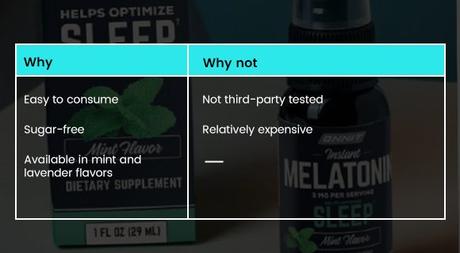
Best Low-Dose: Transparent Labs Sleep Aid & Recover
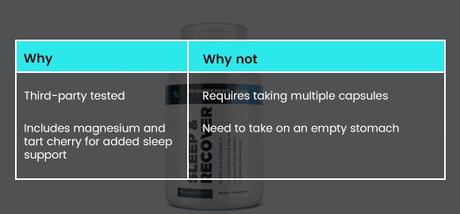
Best for Kids: Nutricost Kids Melatonin Gummy

Best for Adults with Anxiety: Naked Nutrition Sleep Aid Supplement
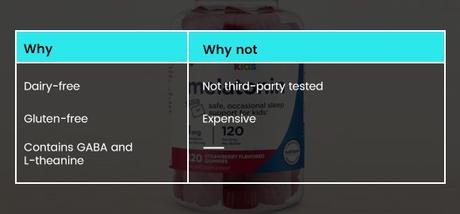
Best for Recovery: Jacked Factory Build PM
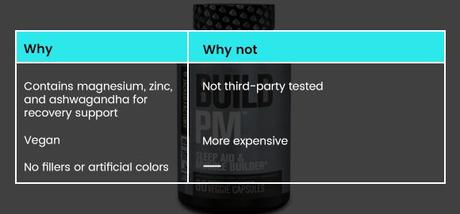
Best Extended Release: Nature Made Extended Release
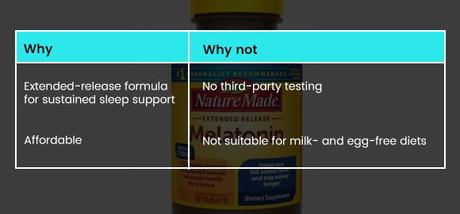
Best for Acid Reflux: New Chapter Restful Sleep and Pain Relief

It's clear that this tiny hormone has a big impact on our sleep and overall health. Whether you're navigating insomnia, dealing with jet lag, or simply struggling to wind down at night, it can be a valuable ally in helping you find your way back to restful sleep.
If you find yourself facing specific issues, don't hesitate to reach out to a healthcare professional for tailored advice. Ultimately, by prioritizing good sleep habits and understanding how they work, you can pave the way for more peaceful nights and brighter mornings ahead.

Ashley completed her degree with nutrition as her major. She loves sharing her knowledge with others and playing with words. After struggling for almost a year to find a job that could make her feel lively, she ended up as a freelance writer. Ashley writes health-related blogs and articles. She makes sure that her works always stand unique and are useful for everyone. Ashley is also a YouTuber who shares health-related videos. She knows the value of the right information and how it can be beneficial to others. Therefore, her only motto is to provide accurate information. If Ashley sounds like that neighbor who you can ask for health tips, take a look at her works.

